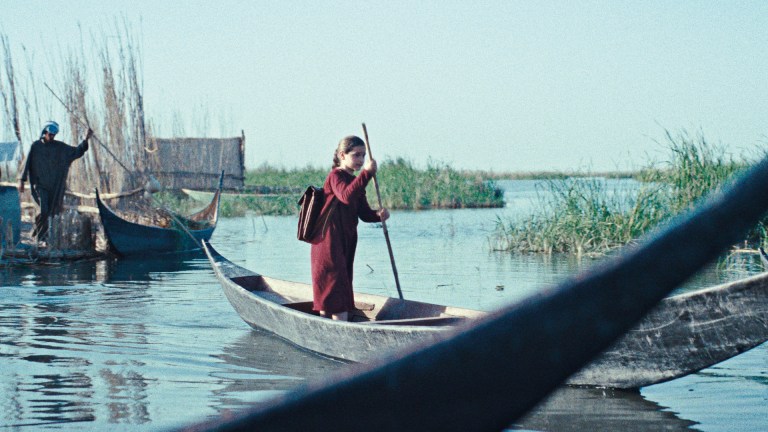This nerve-jangling Danish chase thriller takes its title from the Arabic word for “police”. That in itself seems to suggest that writers/directors Anders Ølholm and Frederik Louis Hviid would like to nudge audiences into viewing its central cop duo from the wary perspective of an outsider. It also chimes with the tinderbox setup, with tensions rising in Copenhagen after a young Muslim named Talib is apprehended so violently by police that he is in intensive care. The victim’s pleas of “I can’t breathe” carry the tragic echo of real-life US incidents.
But while “F*** SHORTA” eventually gets graffitied on to the outside of a police VW Passat, at the beginning we are riding shotgun inside one, witnessing the day-to-day demands of Copenhagen law enforcement. Bullish, broad-shouldered veteran Andersen (Jacob Lohmann) thinks showing any sign of compassion is weakness even at such a volatile time. His newly assigned partner Hoyer (Simon Sears) is leaner and more circumspect, not least because he has been tacitly instructed to keep an eye on the overbearing Andersen. In an early Hot Fuzz-esque montage, they deal with various minor infractions and use evidence-collecting latex gloves to assist with the eating of poorly wrapped burritos.
So far, so fractious buddy-cop boilerplate. It is only when the pair follow a lead into the concrete maze of the Svalegården estate that things begin to spiral. Andersen’s aggressive approach to the stop-and-search of young Amos (Tarek Zayat) overlaps with the news that Talib has died in hospital. Soon after Andersen and Hoyer find themselves on foot and outnumbered as outraged residents look to exact their own justice. Isolated from back-up and hunted with the help of social media, it’s not long before the two have ditched their uniforms. But are they still cops? Keeping Amos hostage so he can show them the best way out –under the flimsy pretext of him being in their custody – feels like a dodgy start.
From there, it is a headlong experience with tense foot chases, abrupt shootouts and meaty fistfights. In an unusual bit of staging, one cathartic punch-up in a grotty public toilet is only fitfully glimpsed from behind a banging stall door, which actually cranks up the tension. In the downtime between action scenes, a handful of the estate’s residents are given more in-depth characterisation to shade in the outlines of their justifiably ambivalent attitudes toward law enforcement, even if the filmmakers cannot quite resist the reliably fear-inducing visual of a masked mob roaming the estate looking for trouble. Andersen and Hoyer both find themselves questioning their outlook and choices as daylight fades into nocturnal gloom and hopes of escape turn into fears for survival.
As the climax approaches, the bubbling social issues are flattened down in favour of creating highly charged tension. But with Netflix and Amazon releasing an endless parade of cartoonish, over-stylised action movies with zero relationship to reality, the street-level grittiness of Shorta ensures it leaves a mark.









